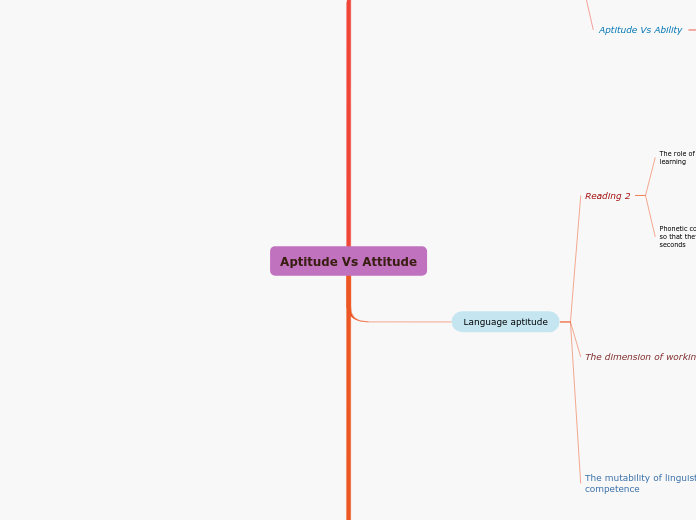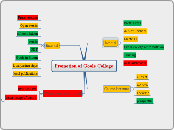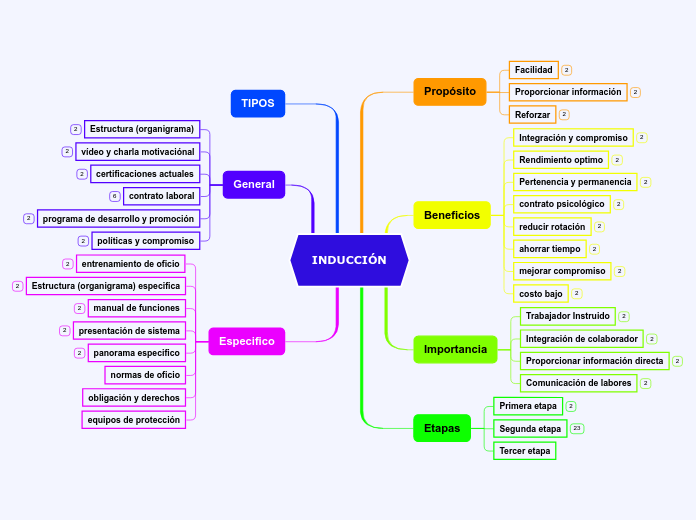Aptitude Vs Attitude
To name your story, you have to think about the overall message and what you want your audience to understand from the story. Also, make it relevant and easy to remember.
Aptitude en lenguas
The ending of a story is essential. We all know that if the ending is weak, what happened before loses its importance. So make it unpredictable, but fair. A resolved ending answers all the questions and ties up any loose threads from the plot.
• Nivel más bajo: constituido por capacidades más específicas, las cuales no se precisan.
This is the closure section of the story.
See examples of possible outcomes below:
- all problems have been solved
- it's clear how each one of your characters ends up
- your main character is transformed by the challenge
• Denominado cerrado: capacidades que reflejan efectos de experiencia y aprendizaje.
• Denominado amplio: capacidades muy generales que se apoyan en dominios
La prueba de medición de rendimiento en lengua inglesa como lengua extranjera, es estandarizada para la medición del aprendizaje de la lengua inglesa en el desempeño de habilidades específicas.
Try answering these questions to come up with a closure:
- Have all the problems been solved?
- Is there a clear picture of what happens with each character in the story?
- Has the challenge transformed your main character?
- How do the characters feel in the end?
• Nivel más alto: es la capacidad mental general
This is the moment when the main character surpasses the last obstacle and finally faces their greatest challenge.
The climax usually follows one of these patterns:
- realization
- resolution
- choice
Type in your answer.
• Nivel intermedio: la analítica fluida, la verbal cristalizada y la capacidad de visualización espacial. (Abarca tres capacidades)
Language aptitude
The middle of the story is where you add layers of complications that will lead to the end. Reveal more about the character's journey. Did their personality go through changes? How did they overcome the challenges? And as you build up the story’s central conflict, make it more personal to that character. Also, from the middle act, you have to lead into the final act.
The mutability of linguistic competence
There wouldn't be any tension and excitement in your story if there weren't any obstacles in your character's way.
Linguistic aptitude has been broadly defined de facto for decades in terms of the instruments used to investigate it.
There are increasing indications and claims that such aptitude is not an unalterable endowment present from birth, or not just something that is innate and unalterable, and that, at least to some extent, awareness arising from experience and training impacts on it.
The dimension of working memory
Your character(s) need(s) motivation in order to solve the challenge(s).
Working memory, like language aptitude, "has traditionally been viewed as a 'trait,' a relatively fixed ability that increases in a predictable and maturation-constrained manner as children grow older.
Secondary characters might also have motives that lead them to cross paths with the main character or which might trigger them to help the main character.
Associative memory, the ability to form links between words in the native and foreign language
Phonemic coding ability, the ability to encode sounds so that they can be retained for more than a few seconds.
Why does your character need to confront this challenge? What does he/she expect to accomplish by solving it?
See a few examples:
- will marry in 3 days
- can fix the mistakes of the past
There are some differences between the current
models of working memory, but they have points in common with respect to the conceptualization of this construct and the account given of its processes.
They also share a conception of working memory as a construct of limited capacity, whose efficiency may vary widely from one individual to another. It is generally assumed that working memory comprises multiple components.
Reading 2
Each story has a main character and that character usually needs to solve a problem or challenge. The character's challenge is the one that creates tension throughout the story.
Phonetic coding ability, the ability to encode sounds so that they can be retained for more than a few seconds
Type in any other challenges which other characters in the story need to face.
Grammatical sensitivity, the ability to identify the functions of words in sentences
functions of words in sentences;
Modern language proficiency tests (and their LLAMA derivatives) have been widely used for decades and, in essence, are still in use; some would no doubt argue that this demonstrates proof of their value.
The role of foreign language proficiency in language learning
In most stories, there are 3 challenges. The number 3 is a mystical number symbolizing completeness. Try to come up with interesting challenges with which your character needs to struggle.
See a few examples below:
- turns into a werewolf at night
- is sent back in time
Grammatical sensitivity, the ability to identify the functions that words serve in sentences; Inductive language learning ability, the ability to take a corpus of material in a target language and make extrapolations (i.e., generalizations) from that material.
Grammatical sensitivity, the ability to identify the functions of words in sentences.
Classification of basic
In the beginning of the story (or the exposition), you will need to introduce the setting and characters. You might also want to introduce the main conflict. This part of the story is important because it gives the reader necessary background information and maybe even a first insight into a character’s personality.
Aptitude Vs Ability
The setting (time & place) of a story can change throughout the plot.
"logro y apttitud
The weather is an important element in your story because it can highly influence the ambiance and the mood of the characters.
Aptitude" is a notion that is synonymous with "ability".
The most affected character is the main character. Write down here if he/she is affected by these weather conditions in any way. For example, if they lost a family member or their home during a hurricane, etc.
Decide if you want to include an element of nature in your story. For example, a rainbow can be a very nice choice for a happy ending. The mist in a story can represent mystery and secrets. A thunder can appear in the background at the moment when the 'bad guy' of the story makes its appearance, etc.
Carroll defined FL proficiency as "an individual's initial state of readiness and ability to learn a foreign language, and likely ease of doing so
Does your story include catastrophic weather? See a few suggestions below or add your own:
- hurricane, earthquake, storm, etc
Aptitude Vs Intelligence
Your story can take place wherever your imagination will take you to.
For example: in an elevator, in an enchanted forest, etc. Don't forget to give details of the environment each time the setting changes, otherwise, the story can be confusing. Also, mention the seasons as each of them has unique weather and events.
Other aptitude factors in Carroll's original model (1962, 1981), such as phonetic coding ability and memory,
do not correlate with intelligence
We found that first-order factor analysis of the aptitude and intelligence scores confirmed that they were separate
Reading 1
Characters are essential to a good story. Usually, the protagonist(s) is/are the most affected by the plot. Introduce a character by focusing on their actions, interests, and occupation, as the physical appearance doesn't make a difference in most cases.
Foreing language
Type in the name of your character.
An ability can be considered a trait to the extent that it exhibits some degree of stability or permanence even over relatively long periods of time.
What is your character's main goal?
fight Evilfind lovedefeat his/her enemyrule the worldmake friendstime travelmake an awesome discoveryOther
Capability can be identified with performance or performance potential.
Which traits best describe the character's personality? Choose more if necessary:
introvertedloyalkindindependentquick-thinkingadventuresomeidealisticsweet-naturedcalmrisk-takercreativewittystrictfussyweirdclumsyharshaggressivecarelessclingingcowardlycrueldeceitfulimpulsiveOther
Aptitud Fl, should be considered a general term consisting of a set of Cognitive skills, which makes it a Componental concept.
Choose the type of your chacter:
Protagonist (main character)Antagonist (main character's opponent)Flat (stereotypical character)Round (his/ her personality develops throughout the story)Static (doesn't evolve as a person throughout the story)Dynamic (dramatical change in personality)Confidant (the main character trusts him/ her)Foil (contrasting character who enhances the personality of another character)Other










